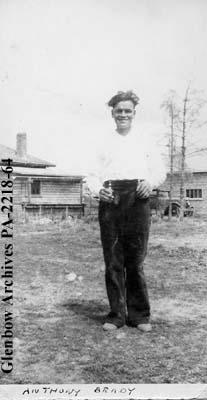Yesterday I read the paper "
Decolonising the Body: Restoring Sacred Vitality" by Alannah Earl Young and Denise Nadeau. I thought this was a very good article that covered two areas of inquiry really well. It provided a very nice indigenous introduction and contextualization of the authors. The paper itself examines "unlearning ways of thinking and being that have been etched onto the body."
The first paragraph is a lovely articulation of indigenous place and belief.
"In writing this article we acknowledge our place in Creation, the Ancestors who have gone before, and the teachings they left with us for the benefit of the future generations. We acknowledge the sacred gifts of the earth, the air, the fire and the water that give life and sustain us. We acknowledge the minerals, plants, animals and the humans are our relatives. We acknowledge the traditional ancestor territories in which we visit, work and live. We honor where our original ancestors; linages come from, and the first they offer in our lives as the continue to direct our intention to reflect our spiritual teachings in practice."
This articulation is something that I have been thinking about. How do we position writing with the same ceremony and seriousness that we would oral information transfer? This one little paragraph has all the elements. The authors go on to introduce their backgrounds both as people and thinkers. The combination of these two paragraphs provides a sense of who the authors are and grounds the words they share in the rest of the paper.
Later in the paper, there is reference to the part boat person (euro) author and her challenge to be accountable for that history and to recognize the benefits that she gained while also working to maintain the integrity of teachings from her other traditions, even working to "uncover, in her own tradition, teachings that complement Native teachings, rather than appropriating the later for her own." This articulation struck me as even before taking on my metis identity, I had been working to uncover teachings from my northern European ancestors on connections to family and related belief systems. For example, we now celebrate the solstice from an indigenous perspective and on another night from the Celtic, Scandinavian and Germanic perspectives. I like this balance where we can recognize the teachings from all our ancestors.
They describe a program they developed and delivered which was geared for aboriginal women to support a stronger cultural identity as a means to help them "mediate multiple forms of oppression in "new" ways", to support reconciliation and to "lift up people's unique gifts and goodness." They are explicit that the goal of the program was not to fix people but to support them to reclaim the personal and community sacredness of indigenous women, embedded in connections to "all our relations" which may have been damaged or lost through colonization.
The program works to support restoration of these connections, both within the singular body, but also within the community body. This involves a practices of compassion of one's self. It is "lived out in an attitude of kindness towards oneself - there is nothing to fix, one just allows one's body-spirit to do what it need to do at any particular moment." That statement gives me chills and I have been thinking about it ever since. I get so caught up in the exercise of self improvement and focusing on my flaws that sometimes overwhelms. This thought is so other to me. When I grew up I was never good enough (Jesus sees all that stuff you do) and you don't work to be nice to yourself. You don't deserve kindness. It was like a weight lifted when I read that sentence. I can just be ok in this moment with nothing to fix.
The paper goes on to describe some of the exercises they do to embed these thoughts including visualizations to send acceptance and compassion to parts of the body that need it, mindfulness, grounding to increase connection to the earth, singing to increase awareness of breath and body work to reverse patterns of disassociation. In this phase of the program they also talk about the medicines and the give and take nature of that relationship. I never thought of this aspect on the medicines. This is something I need to learn more about and I appreciated this little introduction. I am going to try and find some other work by these authors. Both the tone and the practicality of the paper were good. I really appreciated these teachings they shared.
In speaking about female sacredness, I was told by an elder (I forget her name), that I was to serve Sophie's food to her during her moon time. I had mentioned this to Sophie a couple of times, but mostly we both forgot. However, this morning when I asked her to make her lunch she told me she couldn't. My initial reaction was annoyance, but I made it and was both glad she remember and pleased to take part in this everyday ceremony of female sacredness with her. It gladness my heart to see her connecting with these practices of our ancestors and hopefully learning a more positive view of their bodies as women. What do you do for yourself during this time?
























